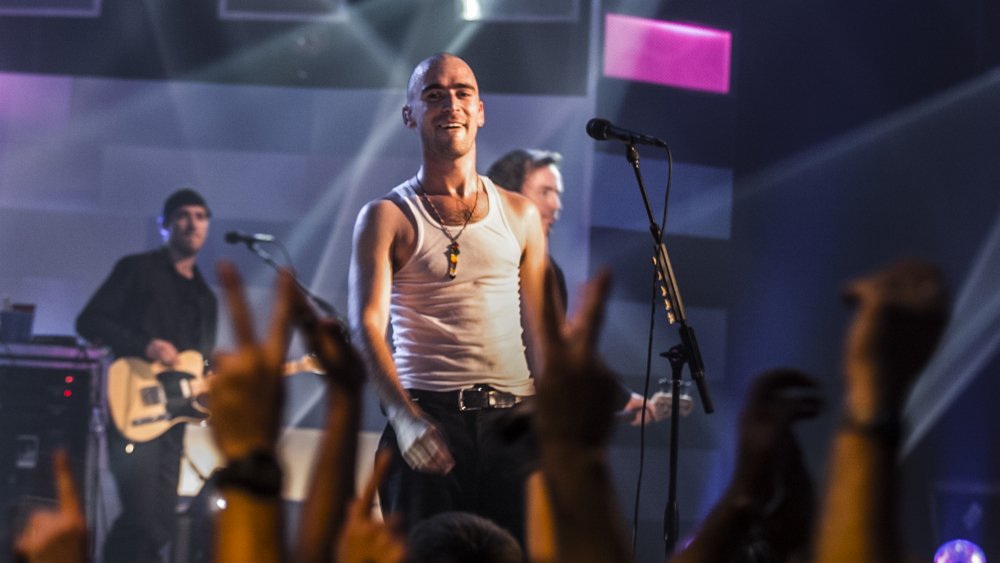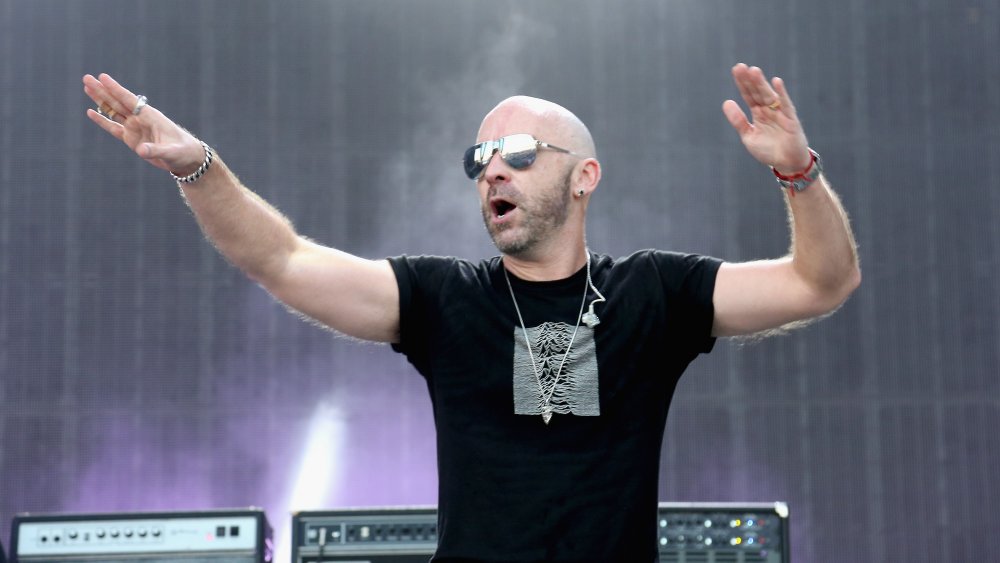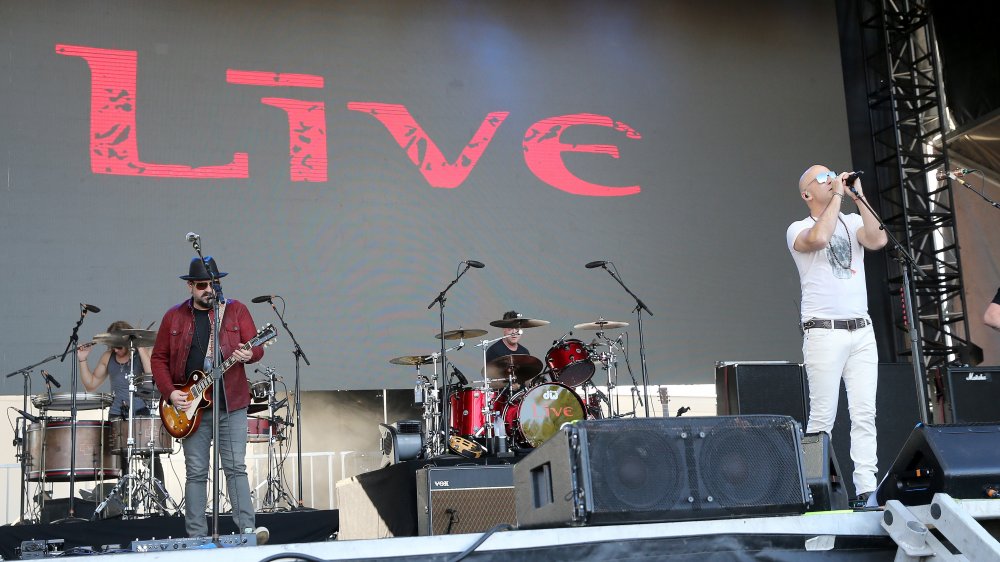Here's Why Live Sued Their Former Frontman
Sometimes when a person quits the band, everything works out quietly and well for everyone involved. This article's headline, however, should put such hopes aside.
While Live formed in the end of the eighties, they exploded all across America throughout the late nineties with "Lightning Crashes" holding the top of the Billboard Hot Mainstream Rock tracks for ten weeks straight. Even more impressively, however, was that for their entire twenty year run from 1989 to 2009, the composition of the band remained unchanged.
In 2009, however, Ed Kowalczyk announced the band would undergo a two year hiatus, allowing himself and the others to pursue their own projects. However, what that seems to have meant was that he'd go off and record his own album while the others regrouped under a new name, The Gracious Few, and record a debut.
Then, Ed Kowalczyk released his album Alive — get it? — and started touring as "Ed Kowalczyk of Live." After that, as both Rolling Stone and The Hollywood Report are keen to point out, the members of Live did not sue Kowalczyk: Technically, it is not Live members Chad Taylor, Patrick Dahlheimer and Chad Gracey who are suing Kowalczyk... but rather Action Front Unlimited, the company the band set up, which holds all their trademarks." Action Front Unlimited sued Kowalczyk, claiming that since he was headlining as "Ed Kowalczyk of Live," he has caused "confusion" with booking agents, the press, and venues who might think he is still part of Live.
Fallout
Of course, the concern for confusion is a ridiculous ploy serving merely as the basis of a lawsuit, though one wonders if Kowalczyk felt too insecure to tour by his name alone. Anyway, as American University's Intellectual Property Brief reported at the time, the company sought an injunction as well as $2 million in statutory damages for claims of trademark infringement, false information of origin, and trademark dilution. As one might expect, this blew up into DRAMA with Chad Taylor, Live's lead guitarist, sighing "We have exhausted every effort known to man to try and reach some sort of peaceful accord with Ed. The legal drama pales in comparison to the personal nature and disappointment of losing a childhood friend." Remember, they had managed to stick together as a band for twenty years of relative peace.
During all this, the other three members of Live decided to reunite without Kowalczyk, instead inviting Chris Shinn. Not that Kowalczyk wanted to return, as he told Rolling Stone when they asked about when he decided to leave: "[After the first lawsuit], when things had risen to such a stupid level. It's kind of hard, if not impossible, to come back from a breach of trust that a lawsuit represents." As for the lawsuit, they settled out of court with Kowalczyk agreeing to change his touring title to "Kowalczyk formerly of Live" — just to avoid any possible confusion.
Reconciliation
In many cases that would have been the permanent end of the classic line up for Live. They all thought that this was the permanent end. Yet on October 26, 2016, Ed Kowalczyk, Chad Taylor, and Zoe LaBelle went on WVYC to promote music Taylo and LaBelle had been collaborating on. It was the first time in ages, however, that Kowalczyk and Taylor were together and this prompted rumors to stir in the fanbase. These rumors continued until December 12 when Live announced via Twitter that they would be touring with the original line up.
Of course, someone had to ask the band about what brought them back together. And The Sydney Morning Herald did, to which Kowalczyk laughed: "I'd be lying if I said any of us expected it. It's been a kind of miraculous reunion." Apparently the group met back in their hometown, York, Pennsylvania, to chat: The space really allowed the history we have as a band, the good memories, to re-emerge. And we started to miss each other, it was that simple. We'd text each other and be, like, 'Hey, how are the kids doing? Let's have a beer.'" From there, their conversations evolved into playing together and soon the band was feeling like a band again. In the end, the twenty years they spent developing from York to a global success could not be so easily washed away by minor legal drama.


